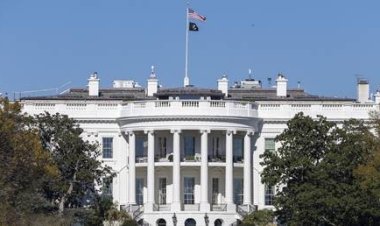Young Males in Korea are Increasingly Leaning Toward Conservatism, Possible Indicator for America's Political Future.
Korea is just the beginning. Around the world, young women are skewing left, while young men are embracing the right.

It was an innocuous enough scene, just a little bit of fluff to keep the fans happy: In February, Huh Yun-jin, a 22-year-old member of the popular South Korean girl group LE SSARAFIM, appeared on national television to showcase a day in her life. As a makeup artist fussed over her, Huh kept her eyes glued to the pages of Breast and Eggs — a critically acclaimed novel that captures the fraught reality of womanhood in Japan.
Huh didn’t mean to start a debate. But her reading habits quickly inflamed South Korea’s ongoing gender wars.
Shortly after the show’s airing, Korea’s chat forums devolved into battle zones, as commenters furiously dissected Huh’s choice in “feminist” literature. Feminism had already been labeled as a dirty word in Korea for years now, and Huh was now being branded as a follower.
“If a girl group is tainted by feminism, you’ve got to send them to hell.”
“Why don’t you guys use this time to actually do yourselves a favor by reading a book too.”
“She wants to act all cultured, attending exhibitions and reading books, but all she reads is feminism. LOL.”
“Is feminism really that bad? You lowly Korean men have a major inferiority complex.”
“Feminists, if I see you I’ll beat you up and make you crippled.”
Around the world, from the United States to China to the U.K. to Germany to Tunisia, in chat rooms and in the streets, the gender divide is widening as Gen Zers split along political lines: Young women are increasingly swinging to the left, while young men are moving to the right — negating conventional wisdom that young people as a whole are more progressive than the generation before them. “Gen Z,” observed data journalist John Burn-Murdoch, who tracked this trend for the Financial Times, “is two generations, not one.”
The United States in particular saw this growing partisan gender split during the 2022 midterms, when far more women voters between the ages of 18 and 29 stood beside Democratic candidates than their male counterparts.
But nowhere is this divide more evident than it is in Korea, where the ideological gap between young men and women is growing wider than anywhere else — altering the country’s politics and fully taking over Korean society.
In Korea, arguably the world’s most wired country, online forums have become battlegrounds over dating violence, the gaming industry and systemic sexism. And in the country’s 2022 presidential race, a populist candidate stoked political polarization between the two genders to his advantage.
At the start of his campaign, Yoon Suk Yeol, the conservative candidate and an avowed “anti-feminist,” declared, “structural discrimination based on gender” does not exist. It was a message that Korea’s young men really wanted to hear — even if it wasn’t true. When it comes to gender parity, Korea consistently ranks near the bottom of most developed nations. But Yoon knew what he was doing: He was speaking directly to young men who felt left behind by a tough economy and who were unhappy with the rapid push for gender equality.
They overwhelmingly voted for Yoon and his People Power Party (PPP) by nearly 60 percent, catapulting him to the presidency with a razor-thin margin of 0.7 points.
These days, for both men and women in Korea, anger is the dominant emotion, a marked shift for a country that normally prides itself on promoting a sense of hope and a can-do attitude. The economy is tanking, housing prices are at an all-time high, income inequality continues to grow, and fertility and marriage rates are far lower than a decade ago. But instead of lobbying for change, as younger generations have done for centuries, young Koreans are fighting among one another over gender rights — and both men and women insist they are the ones who are the real victims. According to new polling, 86 percent of men between the ages of 18 and 39 believe that hatred against men is a serious issue. An equal percentage of women of the same age believe hatred against women is a serious issue.
Nobody comes out winning.
Young Korean men might find relief venting their spleen online, but their quality of life hasn’t improved and isn’t likely to any time soon, says sociologist Kim Nae-hoon, the author of Radical 20s: K-Populism and the Political, which explores the rise of Korea’s raging young men. A third of Koreans still believe their job prospects are worse than the previous year. South Korea’s happiness levels are still one of the lowest out of all OECD countries. Trust in society has plummeted. As a result, Yoon’s favorability ratings have now hit a record low.
“[Politicians’] goal is to have men’s complaints target specific individuals or groups — not the system,” says Kim. “By always giving them something to complain about, politicians keep the group under their control. This is the true nature of today’s ‘hate politics.’”
Korea’s gender divide has a troubling dark side. Today, Korean men on the internet cheer as the government guts the Ministry of Gender Equality and Family — which promotes gender equality, protects victims of sexual and domestic violence and supports family-friendly policies. But more troubling, the threat of violence against women looms: A 2023 analysis found that Korean women were likely to be killed or almost killed by an intimate partner every 19 hours, a rapid escalation from 2021, when a woman was killed or almost killed by an intimate partner every day and a half. Meanwhile, according to Human Rights Watch, gender-based violence in Korea is “shockingly widespread,” and nearly 90 percent of the country’s violent crime victims are women. In a recent video that went viral, a drunk man repeatedly strikes a female clerk in a convenience store, yelling, “Feminists need to be hit.” And in one of the most shocking cases, a woman was stabbed to death in the bathroom of a subway station last year by a male coworker who’d been stalking and threatening her.
“I see a lot more posts online now by men harshly criticizing women in a derogatory way,” says Kim Dain, a 23-year-old college student in South Korea, speaking hesitantly, as she chooses her words carefully. “Now when I’m outside, I am in constant fear of wondering whether all men think the same.”
For all the differences between the two countries, some think this could be a cautionary tale for the U.S. — if its men and politicians choose to go down the same path of division.
This isn’t the Korea that I grew up with.
When I was a kid there in the early 2000s, the news would occasionally flash with a shocking case of violence, but that didn’t impact how I operated out in the world.
Online controversies were never as intense as they are now either. I left 11 years ago to go to high school in the States. Then, the internet was the only way I could feel in touch with my country — scrolling through online forums to see what my peers were gossiping about — but the rapidly changing gender dynamics have made it an increasingly toxic place I now avoid.
So how did Korea get here?
Some point to a Facebook post.
Less than 100 days before Korea’s 2022 presidential election, polls showed that Yoon was losing to his opponent, Lee Jae-myung, a labor-lawyer-turned-politician who gained popularity for doling out Covid-19 stimulus money to his residents as governor of the Gyeonggi province.
Yoon’s campaign needed a bombshell announcement to turn the tables. So Yoon hopped on Facebook and uploaded a simple post: “Abolition of the Ministry of Gender Equality and Family.”
Up until then, Yoon had left the outright criticism to the more radical members of his party. In the past, he just demanded the ministry’s name be changed to reflect support for both genders. (To fully understand the logic behind this decision, it is important to note that a more accurate translation of its Korean name is the Ministry of Women Affairs and Family).
But his Facebook post upped the ante. It racked up over 40,000 likes and nearly 10,000 comments: “I’m supporting you after seeing this”; “KING IS BACK”; “This is the best campaign strategy.” “DREAM COMES TRUEEEEE.”
In polling released a few days later, Yoon, who also blamed the country’s low birth rate on feminism — because why else wouldn’t women want to have babies? — squeaked ahead by a 2.3 percent margin.
Perhaps the bump in polling shouldn’t have been a surprise, especially in a country with a long history of traditional patriarchy. Backlash had already been mounting against Korea’s own #MeToo movement for years, after its peak in 2018. People were wary of the movement, which had repopularized feminism and brought down high-profile names in entertainment, academia and business. Yes, the public agreed that the movement helped address Korea’s history of gender discrimination. But there was also widespread concern that it treated men as potential criminals and wrongly penalized all men for the wrongdoings of a select few. And for young men who came of age during the #MeToo movement, those concerns were particularly pressing: In 2018, 77 percent of men under 30 supported the #MeToo movement. That number dropped to 29 percent by 2021.
“The idea that’s fixed is, 'Feminism is bad,'” says Minyoung Moon, a Clemson University lecturer who published a report about the backlash against feminism in South Korea. “[Men] think women’s movement activists are like interest group people, they’re only working for women’s interests, period.”
Young men went wild for Yoon. Members of Ilbe Storehouse, an online forum that has long served as an echo chamber for misogynistic and fringe ideas and enjoyed a surge in popularity amid the backlash to #MeToo, were especially fanatic in their praise of him. “You old farts can shut up, I’m all in for voting Yoon Seok Yeol,” one fancommented. (A friend of mine broke up with her boyfriend after finding out he was an active user.)
In one widely liked post from earlier this year, a user uploaded a poorly drawn cartoon of an unattractive Korean woman, dressed in a T-shirt that reads, “Unmarried Pig” and complaining bitterly that Korean men are marrying foreign women in droves. Standing behind her are a bevy of Barbie-esque women who don’t appear to be Korean.
“You’ve just got to filter out all the Korean women,” a user wrote approvingly.
Buoyed by Yoon’s anti-feminist declarations, these online communities helped lead a movement to drive young male voters toward the presidential candidate. (While a majority of young men voted for Yoon, only 34 percent of women in that age group did the same.) Yoon’s candidacy would mark a new stage in modern-day sexism — one where it is driven and weaponized by politicians.
When I talk to other young Korean women, I hear a mix of fear, anger and apprehension. Fear, because they worry about being a victim of violence. Anger, because lawmakers have emboldened misogynists for their political gain. And apprehension, because if things continue at this pace, what does this mean for Korea’s future?
The marriage rate is already taking a hit. Distrust between men and women is at an all-time high. Only one in three Koreans have a positive perception of marriage. Family members and friends repeat the same question to me over and over: “What’s the point of marriage if I know I won’t be able to find a good partner?”
Couple that cynicism with a cost-of-living crisis, and it’s no wonder Korea’s birth rate is at a record low. And as the population continues to decline, so will Korea’s once-booming economy.
The threat of violence also looms, and it’s not just everyday women who are the victims. South Korea has also seen an increase in political violence against politicians — violence that’s cropping up across the political spectrum, impacting both men and women alike. That’s because once hate in general, no matter the target, becomes widely accepted, it spreads, according to Nathan Park, a non-resident fellow and Korea watcher at the Quincy Institute.
“This type of nihilistic violence started among the youth and became the ammo of the South Korean conservatives,” Park says. “That is the most concerning development.”
In early January, opposition leader Lee Jae-myung was stabbed by an assailant who later said he wanted to prevent Lee from becoming president. Just three weeks later, Rep. Bae Hyun-jin from the ruling party was attacked with a rock by a 14-year-old boy who claimed he committed the crime because Bae was “doing a (bad) job in politics.”
“In the U.S., there is already a level of incel terrorism,” Park says, “and I am very, very concerned that might become more and more common and deadlier in the U.S.”
As Park sees it, Korea’s troubles are a cautionary tale for the U.S., which is also seeing a widening partisan gap between young men and women and is already seeing politicians use gender as a wedge issue. Polling shows that some young men in the U.S. increasingly are rejecting feminism as a whole.
In 2023, Daniel Cox, a pollster from the American Enterprise Institute who studies the gender divide among the youth, conducted a series of surveys of young men. He found that, unlike older generations, most of the surveyed cohort don’t see feminism as “promoting the interests of women and pursuing gender equality.” They see feminism as “damaging men; it’s reducing their opportunities; it’s limiting what they’re able to do in the world.”
“Roughly half of young men still say it’s important for them to be viewed as masculine,” Cox says, “but it’s unclear what that means. And when [masculinity] becomes very ill-defined, it’s defined against feminism.”
Some American politicians are going out of their way to cater to these angry young men.
Donald Trump boasts about grabbing women by their genitals, calls female political rivals “birdbrain” and “monster” and rejects being labeled as a feminist because “I’m for everyone.” Former Republican Senate candidate Blake Masters, who’s now running to represent Arizona’s 8th district in Congress, denies that women are paid less in the U.S. (Fact check: Women in the U.S. make 14 percent less than their male counterparts, for similar work.) And then there’s Sen. Josh Hawley (R-Mo.), who tells his audience that liberal elites want “men to be quiet and shut up.” It’s the same kind of rhetoric that has been seen in Yoon’s speeches: Validation for the men who feel liberals have forced them into a corner by pushing feminist policies like equal pay and representation in leadership.
And like the politicians of Korea, U.S. lawmakers have the internet on their side to recruit acolytes. As in Korea, where online communities such as Ilbe have radicalized young men, social media in the U.S. has also fed extreme narratives on gender to the youth, Cox says.
Meanwhile, in Korea, things aren’t likely to improve any time soon.
I ask the sociologist Kim Hak-jun if the extreme vitriol in my home country will force Koreans to wake up and turn things around.
He laughs, then offers a blunt, one-word answer:
“No.”
LD TROIB News












